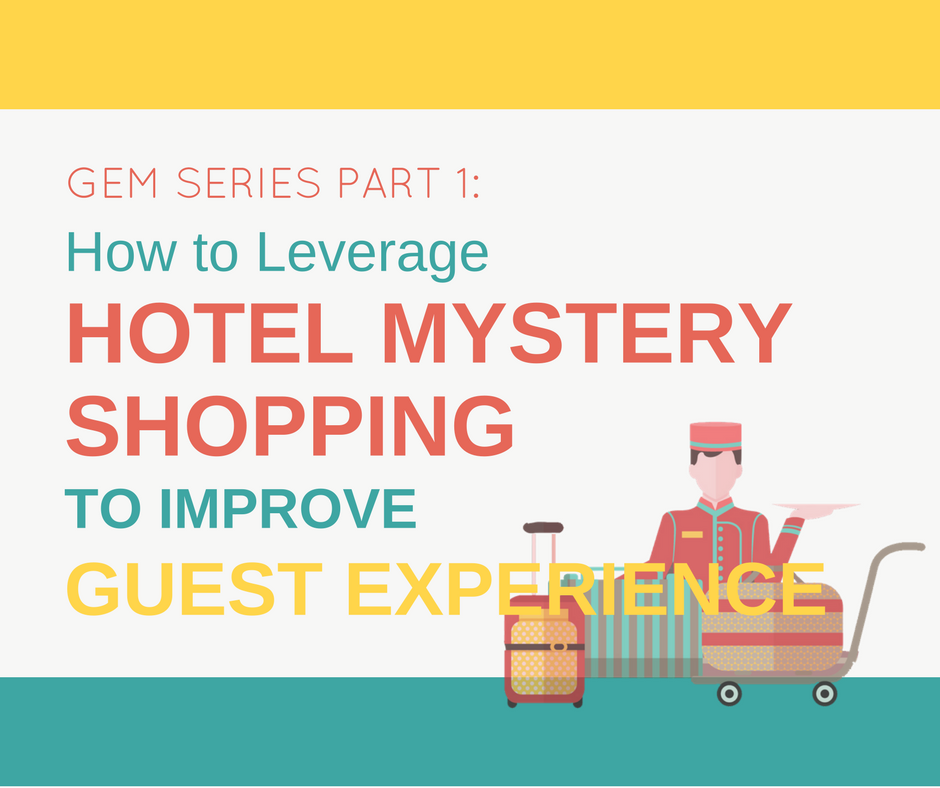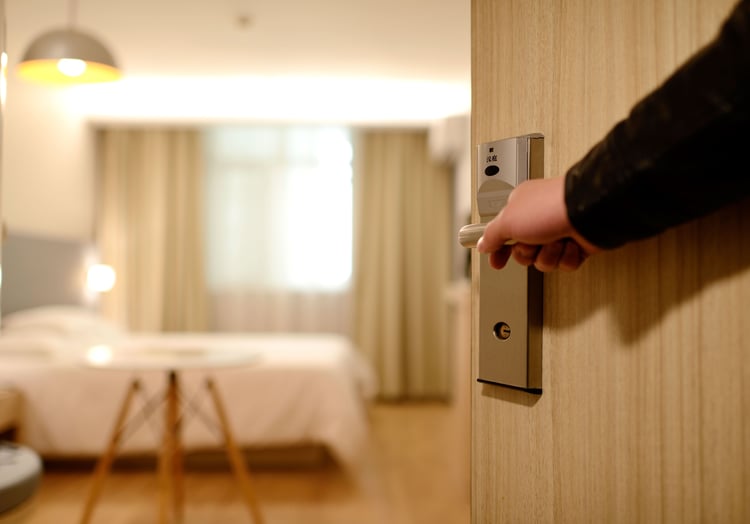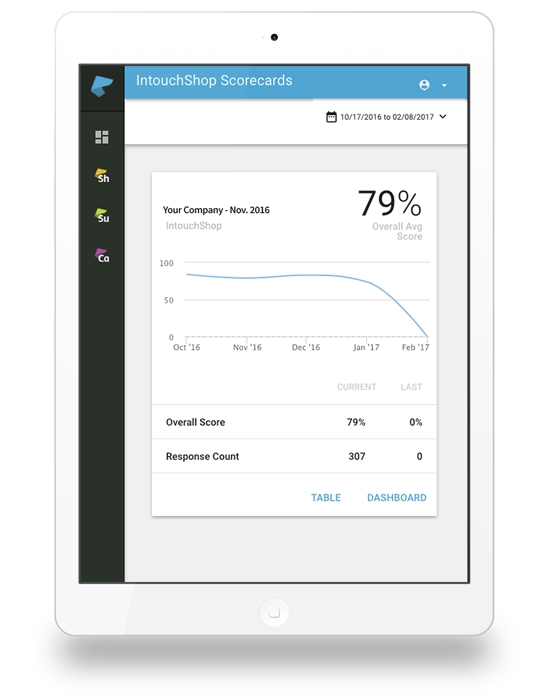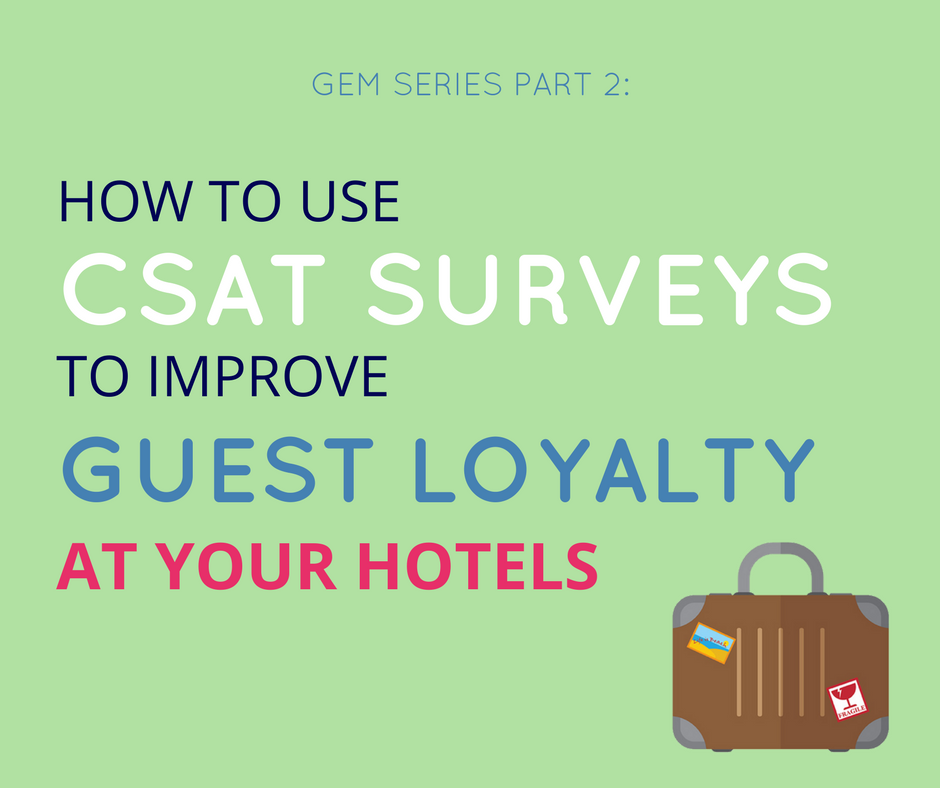How to Use CSAT Surveys to Improve Guest Loyalty at Your Hotels
In order to remain competitive in the hospitality industry, hotels must have a strong understanding of how guests are experiencing their brand and...
2 min read
Navi Vaid August 09, 2017

Businesses in the hospitality industry do more than sell products or services - their customers are paying for an experience. In order to ensure that experience meets or exceeds the expectations of their customers, hotel owners and operators need to get everyone within their organization on the same page about brand standards. When teams aren’t aligned, it can create confusion, inconsistent execution and competitive risk.
(This blog is part one of a three-part series on guest experience management)

Hotel mystery shopping is a great tool for measuring guest experience and the delivery of brand standards across all of your locations to identify areas of excellence and areas in need of focus. The insights gained through mystery shopping programs will arm your teams with actionable, objective feedback so they can prioritize and implement training programs to improve specific patterns or staff behaviors.
In order to continuously improve your guest experience and gain a sustainable competitive advantage, you need a combination of customer, expert and objective feedback when measuring your staff’s execution. Mystery shopping provides you with the objective, unbiased feedback.
Announced visits or overt audits don’t allow you to accurately measure many aspects your customer experience because people change their behaviours if they know the boss is watching or that they’re being audited.
Covert visits to your hotels (via mystery shoppers) allow you to measure everything from customer service to cleanliness. You can use your hotel mystery shopping program to measure any critical components of your guest experience and brand standards that impact customer satisfaction and loyalty. Some common things to evaluate are:
Hotel mystery shopping allows you to collect objective feedback about guest experience and the delivery of your brand standards. Although it is a great way to identify which areas staff need to be trained in, it is also a great way to know which employees to reward when you “catch” them doing a great job.
The more you measure, the more you will be able to improve different patterns and behaviors to ensure consistent guest experiences across your locations. Consistent, excellent experiences are the key to building brand loyalty and a sustainable competitive advance.
Up next in our GEM blog series: How to Use CSAT Surveys to Improve Guest Loyalty at Your Hotels


In order to remain competitive in the hospitality industry, hotels must have a strong understanding of how guests are experiencing their brand and...

Customer experience (CX) is a top priority for most businesses, but many struggle to pinpoint where the brand vision for CX is not being delivered -...

It's a common misconception that Mystery Shopping, Customer Feedback Surveys, and Reputation Management all deliver the same insights into the...